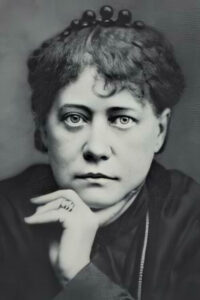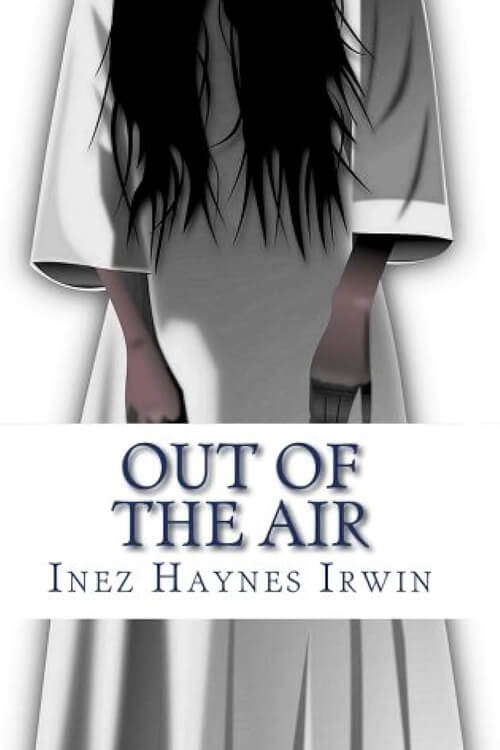
From the Caves and Jungles of Hindostan
Late in the evening of the sixteenth of February, 1879, after a rough voyage that lasted thirty-two days, joyful exclamations were heard everywhere on deck. “Have you seen the lighthouse?”
“There it is, at last, the Bombay lighthouse.”
Cards, books, music, everything was forgotten. Everyone rushed on deck. The moon had not risen as yet, and, despite the starry tropical sky, it was quite dark. The stars were so bright that, at first, it seemed hardly possible to distinguish, far away amongst them, a small fiery point lit by earthly hands.
The stars winked at us like so many huge eyes in the black sky, on one side of which shone the Southern Cross. At last, we distinguished the lighthouse on the distant horizon. It was nothing but a tiny fiery point diving in the phosphorescent waves.
The tired travelers greeted it warmly. The rejoicing was general.
What a glorious daybreak followed this night! The sea no longer tossed our ship. Under the skilled guidance of the pilot, who had just arrived, and whose bronze form was so sharply defined against the pale sky, our steamer, breathing heavily with its broken machinery, slipped over the quiet, transparent waters of the Indian Ocean straight to the harbor. We were only four miles from Bombay, and, to us, who had trembled with cold only a few weeks ago in the Bay of Biscay, which has been so glorified by many poets and so heartily cursed by all sailors, our surroundings simply seemed a magical dream.
After the tropical nights of the Red Sea and the scorching hot days that had tortured us since Aden, we, people of the distant North, now experienced something strange and unwonted, as if the very fresh soft air had cast its spell over us.
Read or download Book
Helena Petrovna Blavatsky
Helena Petrovna Blavatsky (31 July 1831 – 8 May 1891), often known as Madame Blavatsky, was a Russian and American mystic and author who co-founded the Theosophical Society in 1875. She gained an international following as the leading theoretician of Theosophy.
Biography.
Born into an aristocratic family in Yekaterinoslav, then in the Russian Empire (now Dnipro in Ukraine), Blavatsky traveled widely around the empire as a child. Largely self-educated, she developed an interest in Western esotericism during her teenage years. According to her later claims, in 1849 she embarked on a series of world travels, visiting Europe, the Americas, and India. She also claimed that during this period she encountered a group of spiritual adepts, the “Masters of the Ancient Wisdom”, who sent her to Shigatse, Tibet, where they trained her to develop a deeper understanding of the synthesis of religion, philosophy, and science.
Both contemporary critics and later biographers have argued that some or all of these foreign visits were fictitious and that she spent this period in Europe. By the early 1870s, Blavatsky was involved in the Spiritualist movement; although defending the genuine existence of Spiritualist phenomena, she argued against the mainstream Spiritualist idea that the entities contacted were the spirits of the dead. Relocating to the United States in 1873, she befriended Henry Steel Olcott and rose to public attention as a spirit medium, attention that included public accusations of fraudulence.
In 1875, in New York City, Blavatsky co-founded the Theosophical Society with Olcott and William Quan Judge. In 1877, she published Isis Unveiled, a book outlining her Theosophical worldview. Associating it closely with the esoteric doctrines of Hermeticism and Neoplatonism, Blavatsky described Theosophy as “the synthesis of science, religion and philosophy”, proclaiming that it was reviving an “Ancient Wisdom” which underlay all the world’s religions. In 1880, she and Olcott moved to India, where the Society was allied to the Arya Samaj, a Hindu reform movement. That same year, while in Ceylon, she and Olcott became the first people from the United States to formally convert to Buddhism.
Although opposed by the British colonial administration, Theosophy spread rapidly in India but experienced internal problems after Blavatsky was accused of producing fraudulent paranormal phenomena. Amid ailing health, in 1885 she returned to Europe, there establishing the Blavatsky Lodge in London. Here she published The Secret Doctrine, a commentary on what she claimed were ancient Tibetan manuscripts, as well as two further books, The Key to Theosophy and The Voice of the Silence. She died of influenza in 1891.
Blavatsky was a controversial figure during her lifetime, championed by supporters as an enlightened Sage and derided as a charlatan by critics. Her Theosophical doctrines influenced the spread of Hindu and Buddhist ideas in the West as well as the development of Western esoteric currents like Ariosophy, Anthroposophy, and the New Age Movement.






